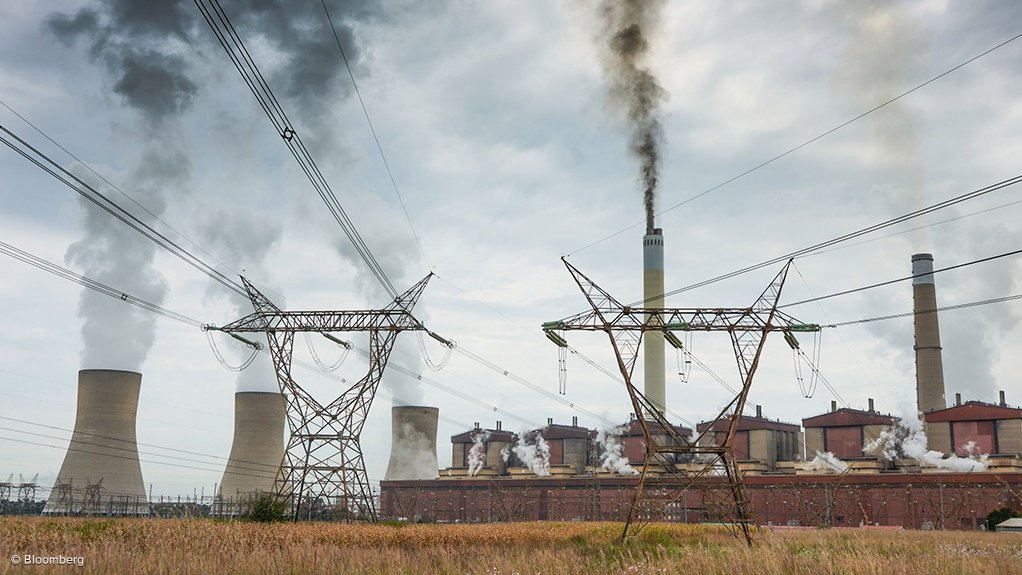Draft IRP 2023 lacks environmental, health, climate commitments, says Life After Coal
Coal phase-out campaign the Life After Coal Campaign, in its comments on the draft Integrated Resource Plan (IRP) 2023, said the plan has fundamental flaws and expressed skepticism in the plan's ability to ensure cost-effective electricity supply, energy security and to uphold the Constitutional right to live in a healthy environment.
“The IRP 2023 does not, in real terms, commit to a least-cost pathway and instead opts for expensive technology and fuel choices. This will perpetuate energy poverty, and make essential services for poor communities even more unaffordable and impact on local economies,” said environmental justice organisation Earthlife Africa director Makoma Lekalakala.
“The IRP 2023 is not aligned with a just transition, and takes us further into the direction of an exploitative, carbon-intensive economy and society,” she said.
The Life After Coal Campaign is a joint campaign by environmental justice organisations Earthlife Africa, groundWork, the Centre for Environmental Rights (CER) and community gender justice organisation Black Girls Rising.
The IRP 2023 plan lacked sound climate commitments, raising questions and concerns about its impact on future greenhouse-gas emissions reduction pathways, the campaign said.
“The Life After Coal submission also highlights recent climate science findings and underscores the disproportionate impacts of climate change on vulnerable groups, such as women and children,” the campaign partners said.
“In the draft IRP 2023, we do not see a commitment to reducing the climate impacts of our electricity system. Climate impacts are already severe, and we know that women and girls are disproportionately impacted. Future generations will have to pay for these unacceptable choices,” said Black Girls Rising founder and director Xoli Fuyani.
“The IRP 2023 compromises gender, intergenerational, socioeconomic and climate justice,” she said.
The campaign added that, as an exercise of public power, adopting an IRP was subject to the principle of legality. This meant that, among others, the IRP must be rationally connected to its purpose and subject to adequate and reasonable public participation.
“Engagement with the public has been exceptionally poor in this process, with short commenting periods and only two online public engagements.
“In addition, the provision of underlying information has been limited and there are few explanations or available calculations to provide motivation for the choices that the IRP claims to prefer,” the campaigners said in their submission.
“The IRP 2023 plan supports substantial fossil fuel-based generation, which is likely to exacerbate energy poverty. Expensive and economically risky technologies, such as extensive gas to power, are not necessary,” the campaign averred in its comments on the draft policy.
Delayed decommissioning of unreliable existing coal-fired power stations perpetuates the costly and dangerous health crisis caused by deadly air pollution from coal-fired power, the campaigners stated, adding that the plan failed to account openly for the costs of these related impacts.
The IRP 2023 energy plan also envisaged new coal in its long-term outlook, and falsely relied on unproven technology to capture carbon emissions in the pursuit of so-called clean coal, "which is a myth supported by fossil fuel interests", the environmental organisations said.
“We are seeing a plan that not only locks us into coal-fired power for longer, but also locks us into fossil gas, which is just as bad for the climate. This also makes us reliant on global gas markets with significant economic risks.
“This is unnecessary, as there are pathways and technologies to deliver clean, affordable and reliable electricity in a shorter time period,” said groundWork director Bobby Peek.
Article Enquiry
Email Article
Save Article
Feedback
To advertise email advertising@creamermedia.co.za or click here
Press Office
Announcements
What's On
Subscribe to improve your user experience...
Option 1 (equivalent of R125 a month):
Receive a weekly copy of Creamer Media's Engineering News & Mining Weekly magazine
(print copy for those in South Africa and e-magazine for those outside of South Africa)
Receive daily email newsletters
Access to full search results
Access archive of magazine back copies
Access to Projects in Progress
Access to ONE Research Report of your choice in PDF format
Option 2 (equivalent of R375 a month):
All benefits from Option 1
PLUS
Access to Creamer Media's Research Channel Africa for ALL Research Reports, in PDF format, on various industrial and mining sectors
including Electricity; Water; Energy Transition; Hydrogen; Roads, Rail and Ports; Coal; Gold; Platinum; Battery Metals; etc.
Already a subscriber?
Forgotten your password?
Receive weekly copy of Creamer Media's Engineering News & Mining Weekly magazine (print copy for those in South Africa and e-magazine for those outside of South Africa)
➕
Recieve daily email newsletters
➕
Access to full search results
➕
Access archive of magazine back copies
➕
Access to Projects in Progress
➕
Access to ONE Research Report of your choice in PDF format
RESEARCH CHANNEL AFRICA
R4500 (equivalent of R375 a month)
SUBSCRIBEAll benefits from Option 1
➕
Access to Creamer Media's Research Channel Africa for ALL Research Reports on various industrial and mining sectors, in PDF format, including on:
Electricity
➕
Water
➕
Energy Transition
➕
Hydrogen
➕
Roads, Rail and Ports
➕
Coal
➕
Gold
➕
Platinum
➕
Battery Metals
➕
etc.
Receive all benefits from Option 1 or Option 2 delivered to numerous people at your company
➕
Multiple User names and Passwords for simultaneous log-ins
➕
Intranet integration access to all in your organisation





















